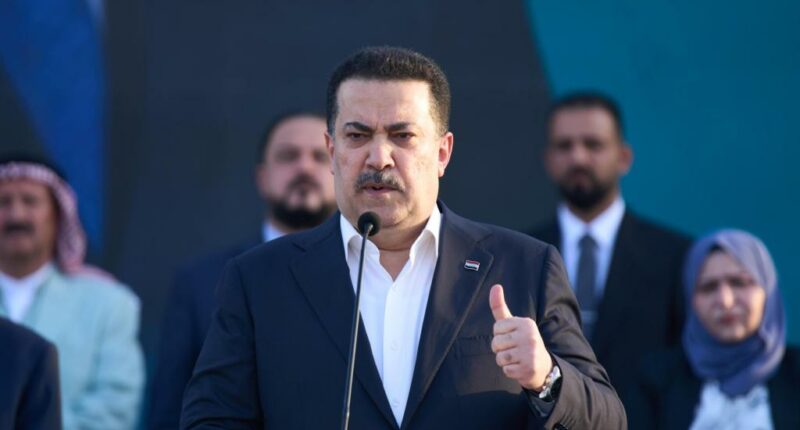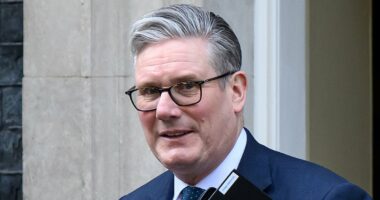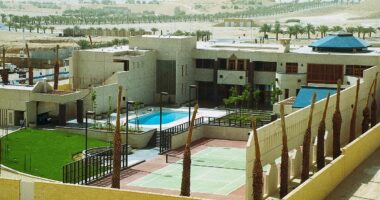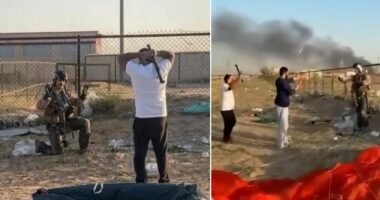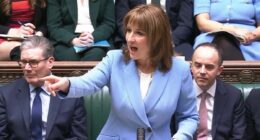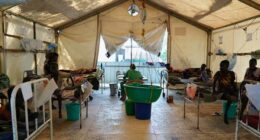Share this @internewscast.com

By QASSIM ABDUL-ZAHRA, Associated Press
BAGHDAD (AP) — Iraq’s Prime Minister announced on Monday that a limited number of U.S. military advisers will continue to be stationed in Iraq to collaborate with American forces in Syria, focusing on efforts against the Islamic State group.
Last year, the United States and Iraq reached an agreement to scale back the U.S.-led coalition’s presence in Iraq by September, with American troops withdrawing from several bases.
Speaking to reporters in Baghdad, Prime Minister Mohammed Shia al-Sudani revealed that U.S. advisers and support staff are currently positioned at the Ain al-Asad air base in western Iraq, near the Baghdad airport, and at the al-Harir air base in the north.
Al-Sudani explained that while the initial plan called for a complete withdrawal of U.S. forces from Ain al-Asad by September, unexpected developments in Syria necessitated the retention of a small group of 250 to 350 advisers and security personnel at the base.
The Prime Minister stated that their role would involve aiding counter-ISIS operations and facilitating coordination with the al-Tanf base in Syria. He also mentioned that other U.S. sites are experiencing a “gradual reduction” in both personnel and activities.
After the fall of former Syrian President Bashar Assad in a rebel offensive in December, fears arose in Iraq of an IS resurgence taking advantage of the ensuing security vacuum and weapons abandoned by the former Syrian army.
Al-Sudani maintained that the extremist group, which seized wide swathes of territory in Iraq and Syria a decade ago, “no longer poses a significant threat inside Iraq.”
Iraq has sought to balance its relations with the United States and neighboring Iran and to avoid being pulled into regional conflicts, a policy that the prime minister said he will continue.
“We put Iraq first, and we do not wish to act as a proxy for anyone,” he said. “Iraq will not be a battlefield for conflicts.”
At the same time, al-Sudani urged the U.S. to return to negotiations with Iran, describing the Trump administration’s “maximum pressure” approach to curtail Iranian influence as “counterproductive.”
“Iran is an important and influential country that must be treated with respect and through direct dialogue,” he said.
There have been tensions between Baghdad and Washington over the presence of Iran-backed militias in Iraq. The Popular Mobilization Forces, a coalition of militias that formed to fight IS, was formally placed under the control of the Iraqi military in 2016 but in practice still operates with significant autonomy.
The Iraqi parliament has been considering legislation that would solidify the relationship between the military and the PMF, drawing objections from Washington.
Al-Sudani did not directly address the proposed legislation but said his government’s program “includes disarmament and national dialogue to remove any justification for carrying weapons.”
“We encourage all factions to either integrate into state institutions or engage in political life,” which could include becoming political parties and running for election, he said.
Iraq is preparing for parliamentary elections next month that will determine where al-Sudani serves a second term.
“Armed factions that have transformed into political entities have the constitutional right to participate” in those elections, the prime minister said.
Originally Published: October 20, 2025 at 12:41 PM EDT
